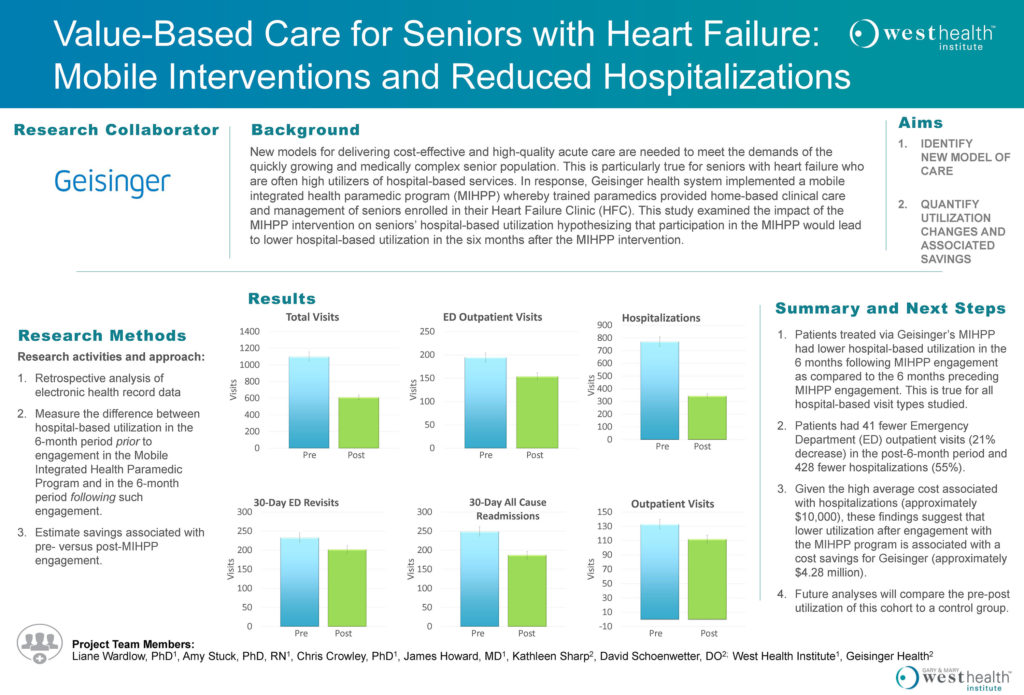Background
New models for delivering cost-effective and high-quality acute care are needed to meet the demands of the quickly growing and medically complex senior population. This is particularly true for seniors with heart failure who are often high utilizers of hospital-based services. In response, Geisinger health system implemented a mobile integrated health paramedic program (MIHPP) whereby trained paramedics provided home-based clinical care and management of seniors enrolled in their Heart Failure Clinic (HFC). This study examined the impact of the MIHPP intervention on seniors’ hospital-based utilization hypothesizing that participation in the MIHPP would lead to lower hospital-based utilization in the six months after the MIHPP intervention.
Summary and Next Steps
- Patients treated via Geisinger’s MIHPP had lower hospital-based utilization in the 6 months following MIHPP engagement as compared to the 6 months preceding MIHPP engagement. This is true for all hospital-based visit types studied.
- Patients had 41 fewer Emergency Department (ED) outpatient visits (21% decrease) in the post-6-month period and 428 fewer hospitalizations (55%).
- Given the high average cost associated with hospitalizations (approximately $10,000), these findings suggest that lower utilization after engagement with the MIHPP program is associated with a cost savings for Geisinger (approximately $4.28 million).
- Future analyses will compare the pre-post utilization of this cohort to a control group





